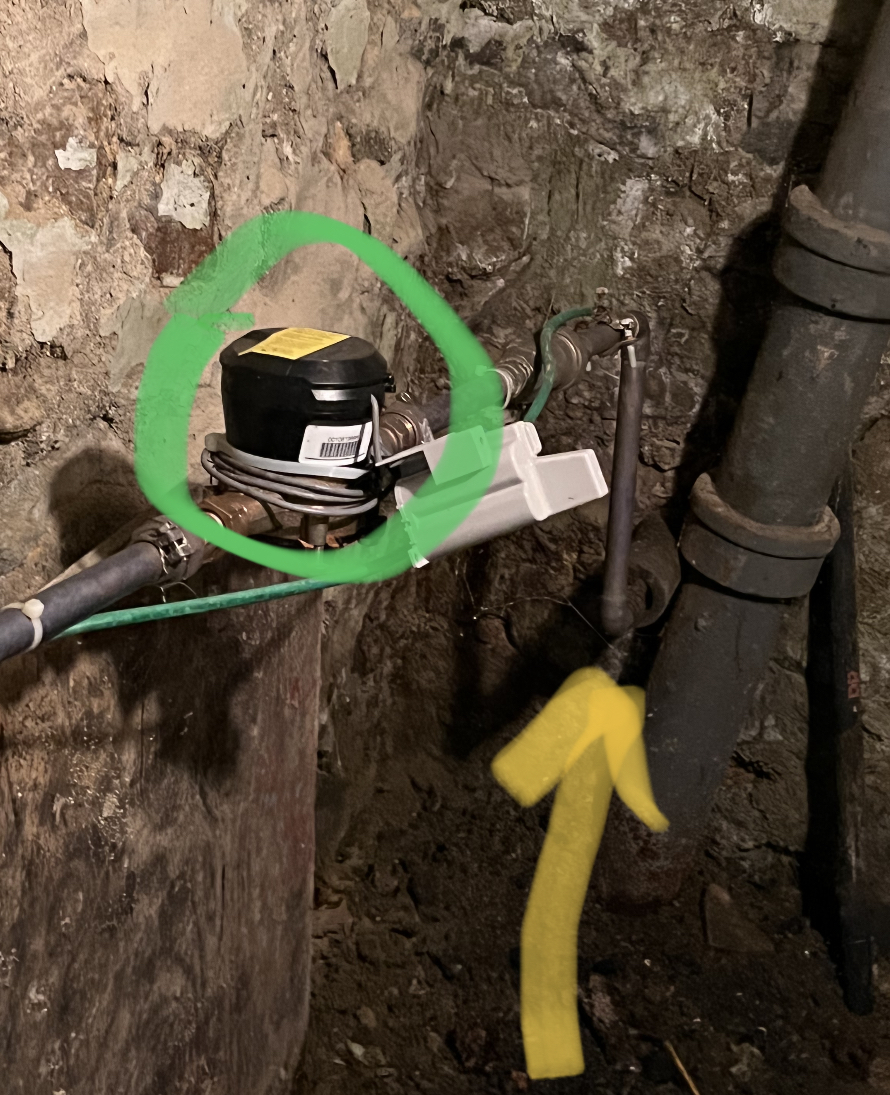Help LCA to Locate Lead Pipes!
 August 3, 2022
August 3, 2022Lehigh County Authority is undertaking an important project, and we need your help: We’re conducting an inventory of all water service line pipes connected to the public system, so that we can determine the location of any remaining pipes that are composed of lead or other unknown materials.
Your part is simple: Just check your home for lead pipes, then complete our online service line survey to tell us what you find—no matter what type of material the pipes are made of!
The water service line is the pipe that enters your property and connects to your water meter. In the image above, the water meter is circled in yellow, and a green arrow points to the service line, which enters the home through the wall. To figure out what that line is made of, download our illustrated guide (PDF), which will walk you through the steps to test your pipe (trust us, it’s easy!).
Lead Safety
In 1991, the U.S. Environmental Protection Agency (EPA) established a lead and copper rule to help reduce exposure and associated health effects from lead in drinking water. In 2021 the EPA revised the rule, this time requiring action by water service providers across the country.
By 2024, all water utilities are required to determine where lead pipes exist in their systems, including the pipes on the customer side that connect to the public system. That’s why we need your help.
LCA already has an inventory of our underground infrastructure (more than 600 miles of pipes and mains in Allentown alone!). This helps us manage maintenance, and prioritize the repair and replacement of pipes. We are working proactively to determine the location of any remaining pipes that are composed of lead or unknown material and mapping their locations. But we need the cooperation of our customers to report all private-side connections and pipe materials.
Help Us Help You!
The information you provide will help us meet the EPA’s regulatory requirements, as well as apply for infrastructure grants available later this year! These will help us as we continue our work to improve and update the water and wastewater infrastructure that serves you. “There is an urgency to gather the information now so LCA can be proactive and go after infrastructure grant funding that is coming available later this year,” says Liesel Gross, LCA’s Chief Executive Officer. “We are really trying to be proactive so that we can be prepared to bring resources into the community.”
Please complete our online Service Line Survey to inform us of the material used for the water service line coming into your property. If you are unable to access the survey on a computer or smartphone, or need help, please call our Customer Care Team.
Learn More About Lead in Drinking Water
Check out our webpage, which explains how lead gets into drinking water: Lead in Drinking Water. The drinking water from LCA’s water sources (creeks, springs, and wells) is lead-free. When water has contact with lead pipes or plumbing fixtures, lead can leach into drinking water.
If your service line is lead or an unknown material, take steps to reduce the potential for lead in your drinking water. If the pipe material is unknown, it is safest to assume it is lead until confirmed otherwise. Download LCA Fact Sheet # 3: Easy Ways to Reduce Lead Exposure: Rinse Your Pipes & Clean Your Aerators.
In the future, LCA will share the pipe inventory online and provide information on our plan to remove public lead lines. We will also communicate the actions customers can take to address lead pipes on the private, property owner side.